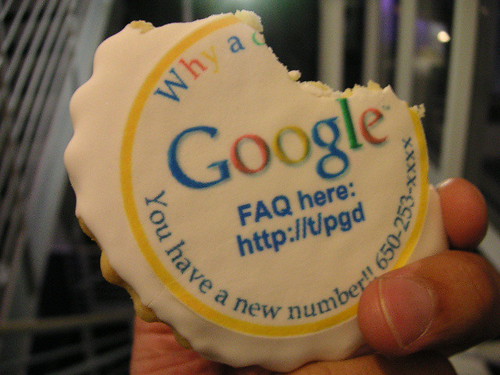links for 2009-02-03
- "Among North American CEOs, 62% said that they think digital will grow this year, while 39% of non-North American CEOs said the same."
Jeff Lebowski is ... the Dude. Vestibulum id ligula porta felis euismod semper. Maecenas sed diam eget risus varius blandit sit amet non magna. Curabitur blandit tempus porttitor.

Personal branding, while not new, is hot. In these uncertain times, many workers are flocking to social media in an effort to build their own brands.
Not every company will want corporate all-stars on the team. But those that cultivate them will be in a strong position to be heard in the noisy social sphere. Here are three considerations:
Use blogs to connect customers and corporate all-stars
Blogs are fast becoming a key part of many brand communication plans. However, according to Forrester, only 16% of online consumers who read corporate blogs say they trust them. To mitigate this, turn boring product blogs into communities that connect customers and corporate all-stars around their shared passions.
Give all-stars independence, yet ensure they stay focused
To be successful, employees with personal brands need to carefully balance their roles as semi-independent thought leaders while maintaining a clear connection to their employers. The ideal situation is when the individual's and company's goals are aligned, the subject matter overlaps, and transparency reigns.
Equip and support personal brands in becoming active listeners
The advantages of having authentic online all-stars go beyond relationships, branding and overall visibility. These people also become active listeners. Equip them to act on potential crises and issues, and enable them to identify new ideas and unmet needs.

Photo: Google Cookie by Massless on Flickr
Note update from Google at the end of this post.
Google tonight made an important change to the Google Ad Planner that - at least as I read it - means they are now tracking every site you visit via a Google cookie and serving the aggregate data up to advertisers. If I am wrong I hope someone will tell me. (If this post is wrong I will correct it - but this is how I am interpreting what Google has put out there so far.)
Let's take a look at the facts.
First, Google yesterday made some subtle changes to its privacy policy. Coincidence? Maybe.
UPDATE 1/30:: A Google spokesperson emailed in the following statement in response to my post...
"Google does not track users in the manner described in the article. We do not track every site every Google user goes to, nor do we have the capabilities to track in this manner.
The updates to our privacy policy made on Wednesday refer to data collection only for the purpose of detecting and preventing fraud or other misconduct; Google Ad Planner is not using any of this data in our enhanced features. There is no relationship between our updated privacy policy and our updated Ad Planner features."
Seems to make sense. However, it doesn't explain where the cookie data comes from. Others point out in the comments that Google has a lot of cookies sprinkled across the web through Doubleclick, etc. and that - in theory - they could triangulate the data. I have emailed Google to see what I can find out.

Friendfeed continues to astonish me. While so much attention is focused on Twitter lately, particularly by the press, Friendfeed is the little site that could. And quietly it's poised to become the next great blogging platform.